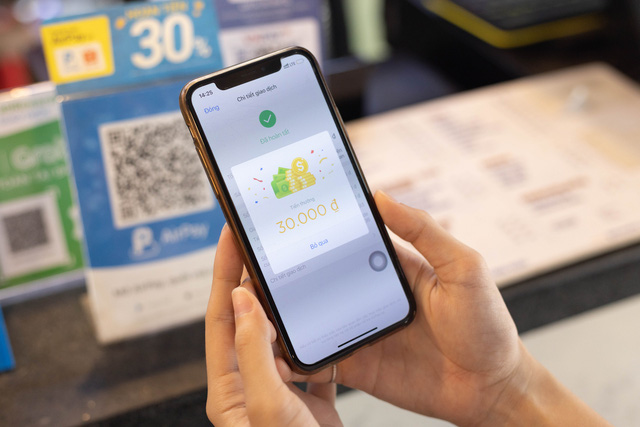Touchless payment – Technology trend is on the throne
- Tram Ho
Instead of having to pay cash to the seller or the delivery man, now, with just a few seconds with a few simple steps, anyone can pay for the item they just bought without paying for it. need cash, don’t even touch or need to carry any device.
Recently, money research organization money.co.uk ranked cashless countries based on contactless payment limits, number of e-wallets, ratio of ATMs per 100,000 inhabitants as well as rate percentage of the population that owns a credit card.
Accordingly, Canada is considered the least cash-intensive economy today. 83% of Canadians, nearly all adult citizens, have a credit card. Contactless payment limit reaches 250 USD.
As for mobile payments, China is at the forefront. Korea also has a high position when cash accounts for only 20% of transactions.
Many technology firms and financial companies in the world are now entering a new race, which is to develop touchless payment technology. The oldest are probably Visa or Mastercard chip cards. When paying, customers just need to lightly touch the card to the POS machine and hold it for 3 seconds, the transaction has been done.

Payment via QR code has gradually become a popular payment method
However, the most popular in the world today are QR codes (Quick Response Code). As the name suggests, QR codes make it possible for buyers and sellers to quickly access the transaction and complete it. The advantage of this method is that it does not require the user to have complicated equipment. As long as you have a smartphone with a working camera.
And there are many other new technologies being applied to touchless payments. In Vietnam today, the main payment method is still card payment and QR code scanning. We can completely aim for a cashless Tet, without carrying a wallet, but just carrying a personal QR code on a smartphone. In particular, if you use digital payment, you can receive many incentives from banks and e-wallets.
Source : Genk
